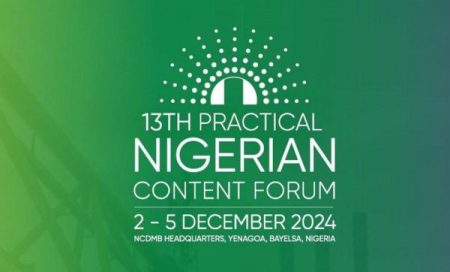 07 September 2014, Sweetcrude, Lagos – It is quoted that over 170 million Nigerians currently survive on less than 5000MW of power provided on the national grid. President Barack Obama’s Power Africa initiative, established in June 2013 is aimed at providing electricity to the over 600 million people in sub-Saharan Africa. At the recently concluded Washington summit of African leaders in August 2014, the US led Power Africa programme to boost generation capacity by 30,000MW, was discussed and US private sector made a commitment to fund the power programmes to the tune of $20million plus commitments worth $6 billion.
07 September 2014, Sweetcrude, Lagos – It is quoted that over 170 million Nigerians currently survive on less than 5000MW of power provided on the national grid. President Barack Obama’s Power Africa initiative, established in June 2013 is aimed at providing electricity to the over 600 million people in sub-Saharan Africa. At the recently concluded Washington summit of African leaders in August 2014, the US led Power Africa programme to boost generation capacity by 30,000MW, was discussed and US private sector made a commitment to fund the power programmes to the tune of $20million plus commitments worth $6 billion.
The six focus African countries include Ethiopia, Ghana, Kenya, Liberia, Nigeria and Tanzania. The Power Africa Initiative now places a demand on African governments, private sector and other development partners such as the World Bank and African Development Bank (AfDB) to improve power generation by 10,000MW. Unlocking other power sources such as: wind, solar, hydropower, natural gas, and geothermals is not overlooked in the plans.
The importance of sufficient power to achieve Millennium Development Goals (MDG) such as: poverty eradication and women empowerment cannot be overemphasised. Successor companies are now in place in Nigeria to deal with generation, distribution and transmission of electric power. Nigeria currently has 6 GENCO’s (Shiroro Hydro Power, Kainji Hydro Power, Afam Power, Sapele Power, Ughelli Power and Geregu Power). 1 TRANSCO (Transmission Company of Nigeria (TCN)) and 11 DISCO’s (Abuja Electricity Distribution, Benin Electricity Distribution, Eko Electricity Distribution, Enugu Electricity Distribution, Ibadan Electricity Distribution, Ikeja Electricity Distribution, Jos Electricity Distribution, Kaduna Electricity Distribution, Kano Electricity Distribution, Port Harcourt Electricity Distribution and Yola Electricity Distribution). Partnerships are currently evolving under the umbrella of Power Africa, with companies such as GE, Alstom, Siemens at the fore front and financiers such as the World Bank, African Development Bank, African Finance Corporation etc as well as commercial banks with strong energy, gas and power desks joining the game..
Milestone achievements to date are:
1. July 2013 issuance of a $1BEurobond. The Coordinating Minister for the Economy and Honourable Minister of Finance, Dr. (Mrs) Ngozi Okonjo-Iweala led the drive through the Debt Management Office (DMO) which is considered integral to unlocking the nation’s economic potential: gas to power, transmission rehabilitation; and also to increase Nigerian Bulk Electricity Trading Plc (NBET)’s capitalization as a credit worthy off taker and the Nigeria Sovereign Investment Authority (NSIA) signed a Funds Management Agreement for the $350M allocated to NBET.
2. Eko Electricity Distribution Company of Nigeria Plc has concluded plans to generate over 1000mw of electricity through embedded power generation model by 2019
4. Global Edison Corporation has concluded plans to construct a $2.5 billion, 1500mw gas power plant in Anambra State within the Power Africa initiative.
5. To evacuate about 660 megawatts of “stranded electricity”, on-going are installation of new, Upgrade of old and rehabilitation of vandalized transmission lines such as ALSCON – Ibom 330KV Lines in Akwa Ibom State; Igangan –Igbora Substation and Ikorodu-Odiganya –Shagamu Transmission Lines in Lagos and Ogun States. $11.2 m contract for the 746 kilometres of the Onitsha-New Haven, Abakaliki and Makurdi 330KV power transmission line etc
6. The cost of doing business in Nigeria is reducing through increased power supply to the existing national power system. Budgetary provision has been made for the revamping of: Ughelli Power Plc, $604m, Sapele Power Plc, $394m, Afam Power Plc, $850m, Geregu Power Plc, $200m, Kainji Hydro, $456m, Egbin Power Plc, $1.700b and Green Field IPP, $ 7.5b
The magnitude of resource optimisation required to actualise the increased 1000% power demand to 50,000MW With local content being a very critical compliance requirement to interested stakeholders Engineers, Metallurgy Engineers, Control System and Instrumentation Engineers, Electricians, Welders, fitters, joiners, Rope Access and Scaffolding Vocational are urgently required. With health, safety, the environment and security being a major issue in Nigeria, the power equation cannot be solved without the deliberate empowerment and utilisation of Nigerians to deliver the projects.
*Dr. Ibilola Amao is the Principal Consultant with Lonadek Oil and Gas Consultants Limited, a firm of technical consultants with their core competence in the area of Local Content and Vendor Development. For more information or to reach Dr. Amao you can email her at [email protected] or visit www.lonadek.com



